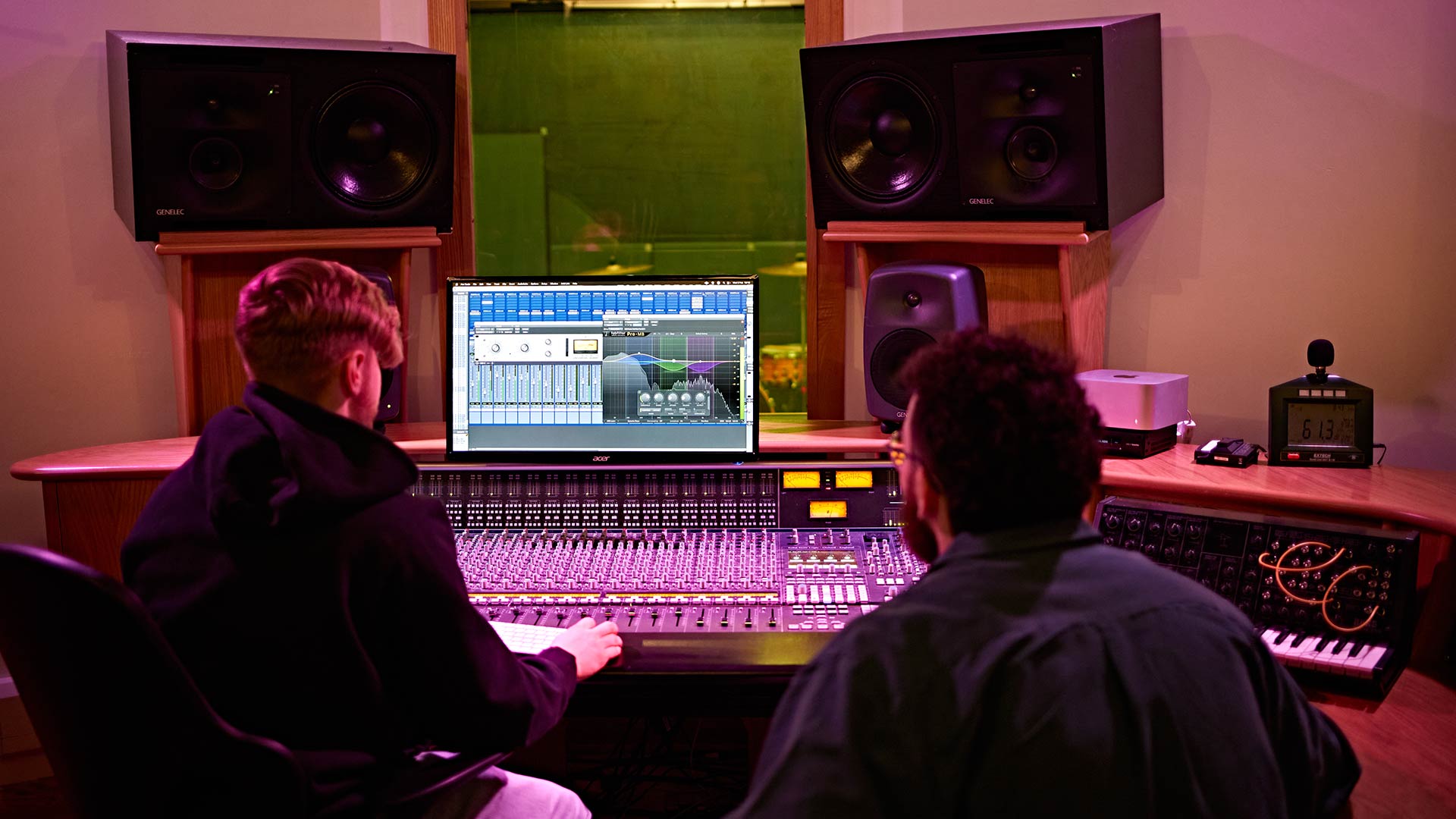Audio Technology vs Music Production
The School of Computing and Engineering offers two degree courses in Sound Engineering incorporating Audio Technology and Music Production.
What's the difference?
Overall, the two courses are designed to provide students with different sets of skills and knowledge, depending on their career aspirations and interests in the sound and music industries. However, it is possible for students to transfer between the two courses due to there being a common core of modules existing around popular music production.

Here’s a quick run down of our two courses:
Sound Engineering with Audio Technology BSc(Hons)
This course covers topics such as acoustics, digital signal processing, recording techniques, audio electronics and mixing and mastering.
Acoustics
Acoustics play a crucial role in sound engineering. An understanding of acoustics can help sound engineers make informed decisions about microphone placement, room acoustics, and other factors that can affect the quality of the sound recording or mix.
Audio electronics
An understanding of audio electronics can help sound engineers make informed decisions about which equipment to use to maximise the signal flow performance, how to set it up, and how to troubleshoot any technical issues that may arise. This all ensures the best possible sound quality.
Graduates of the Sound Engineering and Audio Technology course are well-prepared for careers in a variety of areas, including recording studios, research and development, live sound engineering, broadcast and production, computer game and plug-in development.
Sound Engineering and Music Production BSc(Hons)
This course is a popular option for students who are interested in pursuing a career in the music industry. The course covers topics such as sound recording, mixing and mastering, critical listening and radio production.
This course is designed to provide students with the technical skills and knowledge needed to produce high-quality music recordings, as well as the creative skills needed to develop and produce high-quality audio for different purposes.
Having a good understanding of signal flow, mixing techniques, critical listening and audio equipment, sound engineers can create high-quality sound recordings and mixes that meet their clients' needs and expectations.
Students on both of our course have access to the University's recording studios and equipment. Both courses are taught by experienced professionals with backgrounds in both Sound Engineering and Music Production and Sound Engineering and Audio Technology.
